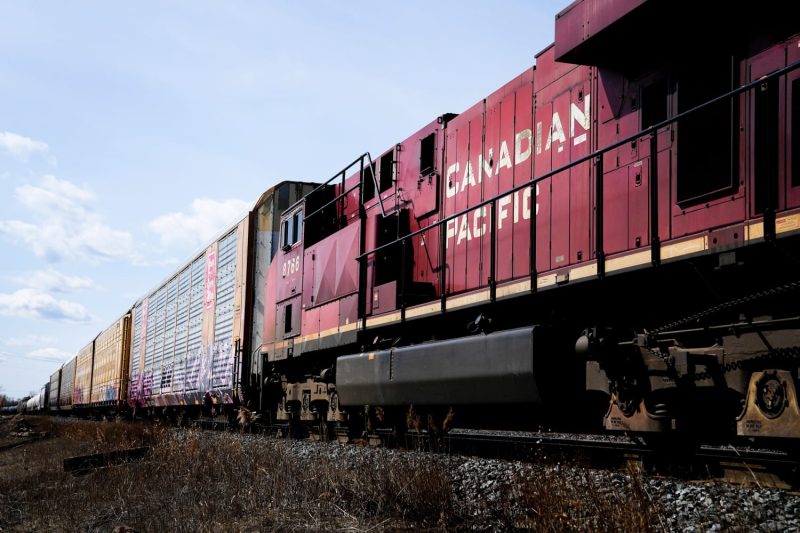The recent news of a possible work stoppage at Canada’s two largest railroads is causing significant concern for the U.S. supply chain. Canadian Pacific Railway (CP) and Canadian National Railway (CN) are vital components of North America’s transportation network, facilitating the movement of goods between Canada and the United States. Any disruption in their operations could have far-reaching implications, affecting various industries and potentially leading to significant delays and bottlenecks in the supply chain.
Both CP and CN play a crucial role in transporting a wide range of products, including commodities, energy resources, manufactured goods, and agricultural products. These railways serve as key connectors between major ports, manufacturing centers, and distribution hubs on both sides of the border. A work stoppage at these railroads could disrupt the flow of goods, leading to supply shortages, increased transportation costs, and challenges for businesses that rely on timely deliveries.
The potential work stoppage comes at a time when the global economy is already grappling with supply chain disruptions caused by various factors, including the ongoing COVID-19 pandemic, labor shortages, and logistic challenges. The impact of such a disruption could be particularly significant for industries that are heavily reliant on rail transportation, such as automotive, agriculture, energy, and retail.
In the automotive sector, for example, the production of vehicles and automotive parts could be severely hampered if the railroads are not operational. Many manufacturers depend on just-in-time delivery systems to ensure a steady supply of parts and components for their production lines. Any delays in the transportation of these critical items could lead to production shutdowns and inventory shortages, affecting both domestic and international markets.
Similarly, the agricultural sector relies heavily on rail transport to move crops, livestock, and agricultural inputs across vast distances. A disruption in rail services could impact farmers’ ability to transport their products to market, leading to financial losses and potential food shortages. Moreover, the energy industry, which relies on rail transport to move oil, gas, and other resources, could also face challenges in maintaining the flow of energy products to refineries and distribution points.
The retail sector, which heavily relies on efficient supply chains to meet consumer demand, could also feel the impact of a work stoppage at the Canadian railroads. Retailers depend on timely deliveries of goods from suppliers to stock their shelves and fulfill online orders. Any disruptions in the transportation network could lead to stockouts, delayed deliveries, and ultimately, dissatisfied customers.
In conclusion, a possible work stoppage at Canada’s largest railroads has the potential to disrupt the U.S. supply chain and impact various industries. Businesses across sectors need to closely monitor the situation and develop contingency plans to mitigate the impact of any disruptions in rail transportation. Cooperation between stakeholders, proactive communication, and strategic planning will be essential in navigating the challenges posed by a potential rail strike and ensuring continuity in the supply chain.



























